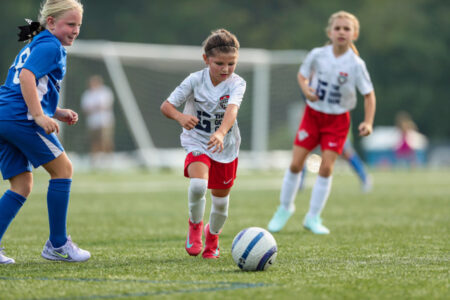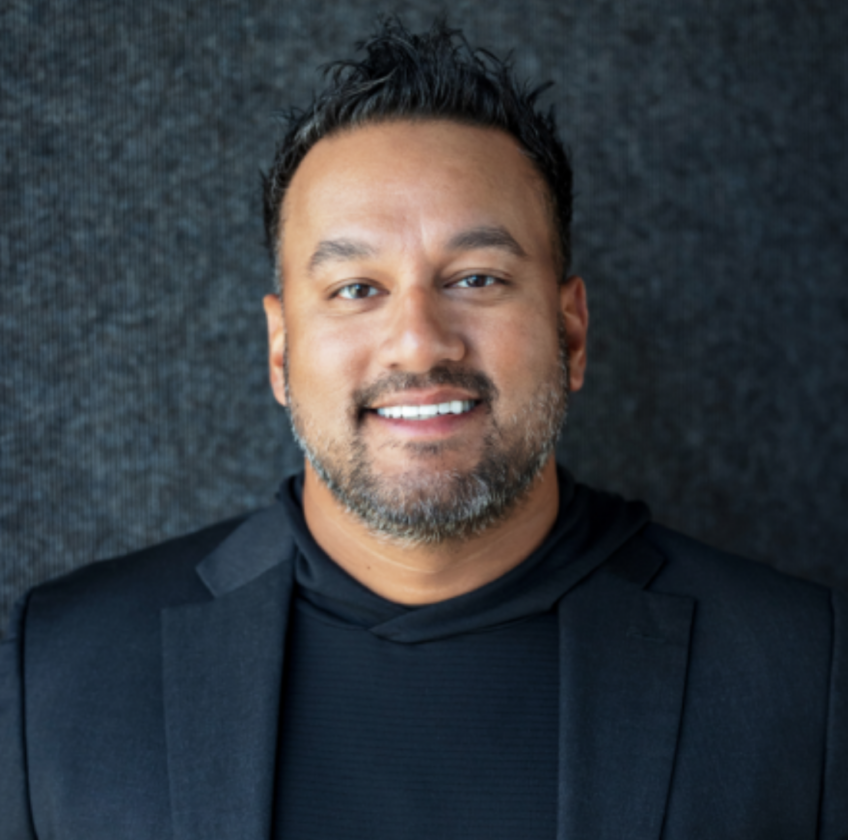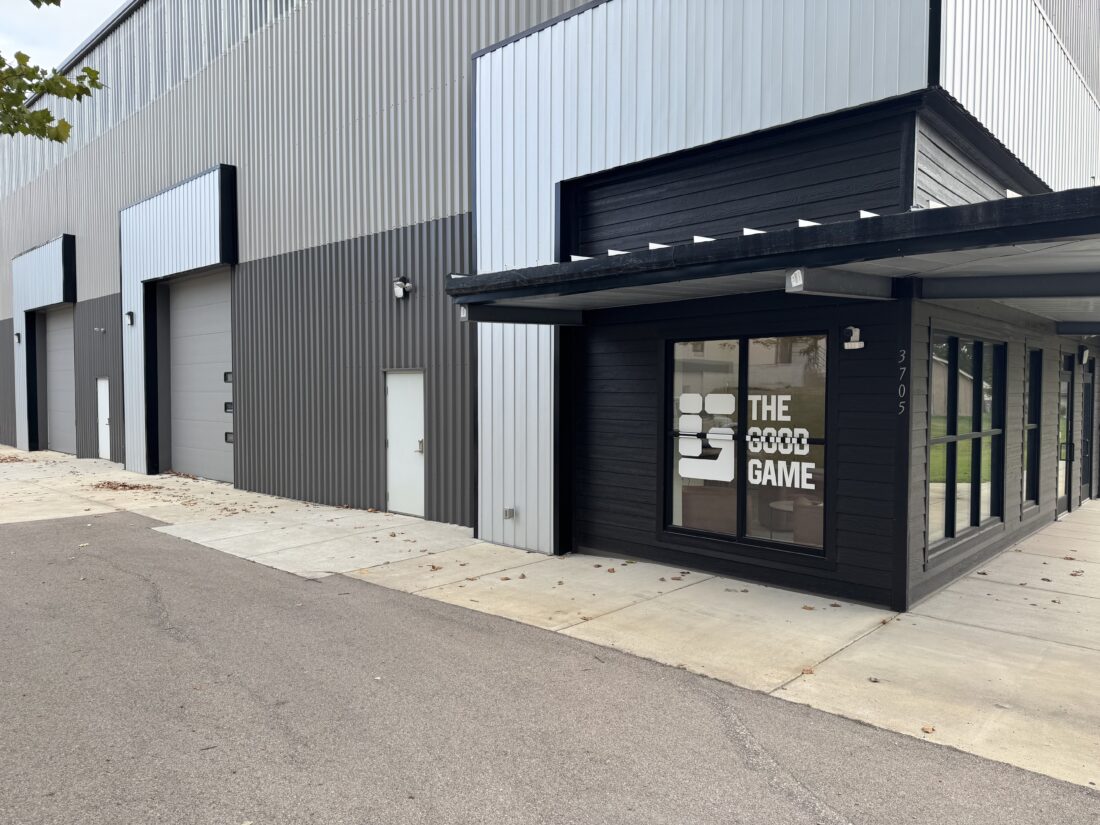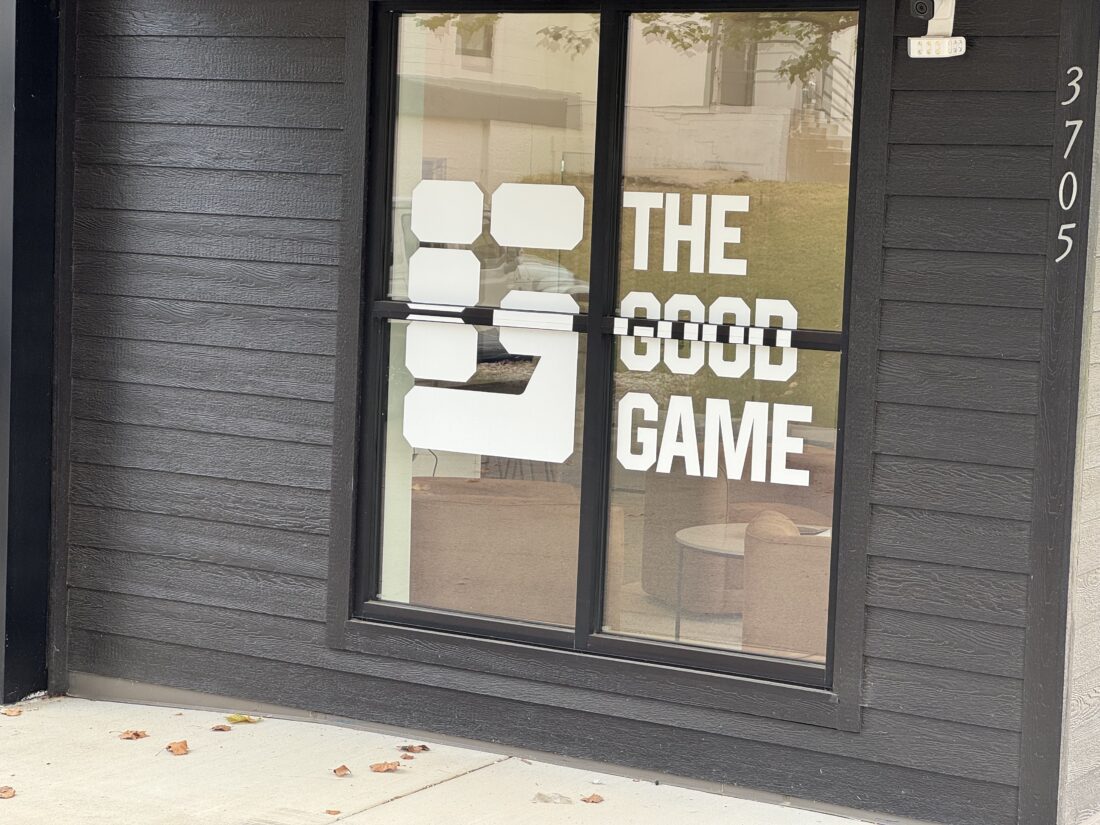
After big success with one startup venture, Lawrence entrepreneur betting on a breakthrough in youth sports
Local firm already has 30 employees working to create national app

photo by: Submitted: Ryan Weaver
Area youth who use the Lawrence-based The Good Game app are pictured at a recent soccer match.
Lawrence entrepreneur Zarif Haque already has figured out how to navigate the notoriously difficult world of technology startups.
His Draiver app — it provides a more efficient delivery system of used cars to dealerships — is now part of one of Mexico’s most rapidly growing companies, Kavak. The app that Haque created as a startup in Lawrence has been a success on almost every level, resulting in a “life-changing” deal with the Mexican company, he said.
So, while he has profitably figured out how to navigate the world of startups and angel investors (who aren’t always angelic,) there’s another world that he’s finding difficult to crack: Youth sports.
Haque and his wife, Mamie, have three children who are all in youth sports at the same time.
The problems in that ecosystem are numerous. First, take the chore of finding a coach or trainer to help their kids get better with a particular soccer skill. The process ends up sounding like something out of a bad mob movie, with phrases such as “I know a guy,” or “I’ll hook you up.”
“I was astonished when I couldn’t find somebody easily,” Haque said, noting that résumés and credentials can be a hard thing to find and verify when searching for a trainer.

photo by: Submitted: The Good Game
Zarif Haque
While that problem is daunting, the next one borders on mind-numbing: Paperwork. For each of his kids, there is seemingly a new batch of paperwork for every team they join, every tournament they play in, every trainer they work with, and so on.
“I have to fill out a form every single time my child gets involved in something,” Haque said. “I have three children, so that becomes almost exponential.”
Those problems and a few others have added up to a big, potential solution — Haque’s newest startup company.
Haque has started The Good Game youth sports training app. The company is based in Lawrence out of a combination office/gym facility off of Clinton Parkway, and already has 32 employees and contractors working for it. It also has just more than 200 trainers and other youth sports experts offering their services on the app to about 2,000 users.
But Haque is quick to point out that those are just startup numbers. Fueled by the success of Draiver — it now is being used in nine countries — Haque plans on taking his latest Lawrence startup company national.
“Our hope is we become a household brand where anybody who is trying to work or access youth sports is able to do so with ease because they have a profile with The Good Game,” Haque told me. “And, that they never have to fill out paperwork again.”
To reach that level of success, The Good Game needs to sign up a lot of parents of youth athletes, and a lot of youth sports experts, such as trainers, coaches, tournament operators and others in the industry.
To get parents to sign up, Haque is betting they will appreciate a couple of things. First is the aforementioned reduction in paperwork. Once they create a profile for their child, every coach, tournament organizer and trainer who has a connection with The Good Game simply will be able to use that profile for the information they need on the athlete. Plus, The Good Game App will be the payment platform so that parents don’t have to deal with sending money to a multitude of accounts. On that front, the app also plans to offer payment plans to parents who perhaps are facing a large amount of fees for multiple kids joining a traveling team or attending camps all at once.
The second selling point, though, is the vetting process. The Good Game will require every expert on its app to go through a complete background check. They’ll also be required to show and verify their credentials.
“It is like how do we create a TSA pre-check for getting involved in sports?” Haque said. “TSA clears travel. We’re going to clear sports engagement.”

photo by: Chad Lawhorn/Journal-World
The west Lawrence offices for The Good Game are pictured on Oct. 9, 2025.
As for getting the experts to sign up for the app, they likely will be interested in doing so as more parents sign up. It will be an efficient way for the experts to get their names in front of potential customers, Haque said.
But The Good Game is starting at a time when there may be a large, new crop of experts who are eager to enter the youth sports training field, and certainly don’t have the time or expertise to set up things like websites or payment systems.
That new crop of experts is college athletes.
With new rules that allow college athletes to earn money, Haque is betting that many athletes — especially those in the lower-revenue sports of volleyball, golf, tennis, softball, baseball and others — will be eager to give personal training or coaching a try. They should be, Haque said, because it has become clear that youth are excited to work with college athletes.
“With our market studies, we have found that the youth connect really, really well with college athletes just in terms of closeness to age and comfort level,” Haque said. “What we’re finding is not every college athlete is a good trainer, and the market respects that. But the ones that are good, they are earning very, very well.”
The app aims to be a turnkey solution for experts who want to start offering their services. In addition to providing the payment platform, a scheduling platform, and a system to communicate directly with athletes, the app also has created a liability insurance program for trainers, coaches and other experts. When working with youth, it is critical to have liability insurance in case something goes wrong. However, it can be difficult for trainers to obtain that insurance if they aren’t working with a larger organization.
As college athletic programs become more eager to help their student-athletes earn more money — it boosts recruiting if they can show recruits how they can make money on the side — it would seem the environment for cutting deals to work with entire groups of student-athletes could be ripe.
Getting large numbers of both parents and experts onto the app will be a key to making the business model work, Haque acknowledged. The app plans to make money by charging a convenience fee to parents each time they use the app to buy a service from an expert. But the fee will be nominal, Haque said, comparing it to the credit card fees of a couple of dollars that you often see on bills these days.
“We’re looking for volume,” he said of the business model.
In other words, Haque really is betting his latest Lawrence startup company can truly become national, or maybe international, in scope. If indeed it does, the result could be a major business enterprise for Lawrence.
“A lot of stats say that the youth sports industry is at least $40 billion,” Haque said. “This is a small part of that, but when you look at the overall transactions, the models show this company has a lot of potential because we are involved in every single sport.
“Like every founder, the goal is to make it a billon-dollar company if you can. It is realistic. The market is there. Execution will determine what happens.”

photo by: Chad Lawhorn/Journal-World
An office sign for The Good Game is pictured on Oct. 9, 2025.







